In the labyrinth of Nigeria’s current political landscape, a sense of disillusionment pervades the air. It is a nation where forged certificates find refuge in the halls of justice, creating a precedent that threatens to tarnish whatever credibility we once believed we possessed.
Corruption, like a chameleon, constantly adapts and resists exposure. What becomes evident is that the Nigerian criminal and political establishment abhors concrete evidence. They swiftly dismiss allegations against them, only to fall silent when faced with undeniable proof, sometimes covertly seeking the arrest of those who dare to expose their transgressions. It begs the question: Where do we go from here?
Why is it that we, as a nation, seem to embrace unscrupulous characters and yet proudly present ourselves to the world, claiming integrity in our dealings? A retrospective look at our political journey since Nigeria’s birth 63 years ago reveals a disturbing trend. With each passing election, our political discourse seems to regress further into chaos. With widespread fraud, violence, and ethnic and religious divisions, the 2023 general election stands out as the pinnacle of this decline. This compels us to ponder: Can the centre hold in Nigeria? Have we truly achieved “One Nigeria”?
Hatred and bigotry have burrowed deep into the heart of our nation, where life seems to have lost its sanctity. Bitter governance appears to be the prevailing order, with leaders engaging in lies, forgery, corruption, cheating, illegality, and other nefarious deeds. In a shocking twist, we now openly celebrate injustice, lies, corruption, and fraud without remorse. Justice remains elusive for the poor, and career advancement often depends on factors unrelated to merit, such as one’s ability to pay bribes, settle with a body, join exclusive circles, or even become a member of a secret cult. Nigeria, a nation dotted with churches and mosques on nearly every street, seems to exalt something above the principles of godliness, goodness, and fairness.
Our nation’s reputation has plummeted on the global stage. When travelling abroad, one hesitates to publicly declare Nigerian nationality for fear of ridicule. We have become an international laughingstock, a subject of mockery on every continent.
Ironically, even smaller African countries, with less landmass and GDP, now mock us openly, yet we fail to heed this glaring warning sign. Why has our national integrity continued to erode since the advent of democracy in Nigeria? The prevailing sentiment seems to be: Why invest four to six years of time and money in education when forging a certificate offers a shortcut to success?
In a shocking incident on live television, a sitting governor refused to disclose his educational background, stating that “the issue is in court.” Such moral degradation has become the norm in Nigeria today. We find ourselves governed by individuals with untraceable records who would do anything to attain power and wield control over generals, professors, lawyers, doctors, teachers, and more, without any verifiable credentials. Can we truly extricate ourselves from this dilemma? Perhaps it’s time to rethink the professionalization of politics, transforming it into a noble service to our nation devoid of excessive rewards.
Since gaining independence, our moral standards, both as a nation and as individuals, have deteriorated. Some parents have gone so low to purchase certificates for their children that bribery and corruption permeate the workforce. Human life has lost its value, with kidnapping and armed robbery becoming lucrative businesses in today’s Nigeria. There was a time when our currency, the naira, was stronger than the US dollar. Now, a naira is equivalent to 1,000 dollars. The question looms: where do we go from here?
It’s disheartening to witness educated individuals, professors, journalists, media houses, and diaspora Nigerians defend forgery and perjury cases, such as the one involving President Alhaji Bola Tinubu. Instead of uniting as Nigerians to seek the truth, lies and propaganda prevail. The confusion among the populace is palpable as they grapple with conflicting narratives, both within and outside the country. It is ironic that those we trust to unearth the truth are often complicit in perpetuating falsehoods, even as they profile Nigerians as fraudsters.
Now, Nigeria stands in desperate need of a factory reset. The nation currently finds itself in the grip of evil forces that stifle progress. Fake news proliferates, and thugs enjoy more respect and honour than first-class graduates. Professionals can be assaulted on the streets with impunity, and armed security personnel can openly take lives without consequence. The time has come for us to collectively hit the reset button on our political system and embark on a journey towards genuine reform and national redemption.
It is no longer tenable to continue on our current trajectory. We must acknowledge the need for radical change, an overhaul of our political landscape, and a return to the values that once defined our nation. Is there a way that whosoever has participated in governance in Nigeria, up to the councillor’s post, in the past until today, and any member of their family, will be suspended for life from taking part in politics in Nigeria in the next dispensation?
The process will be arduous, but the alternative—allowing our nation to decay further—is simply untenable. A factory reset mode for Nigeria is not just a desire; it is imperative for our survival and the restoration of our national honor and dignity on the world stage. The time for action is now. Our Constitution must be bigger and superior than any individual, and not otherwise. Nigeria is our only country; we must not allow her to crumble under our nostrils.
Hon. Oke Oluwarotimi wrote from Shagamu
theofficiallionking1@gmail.com


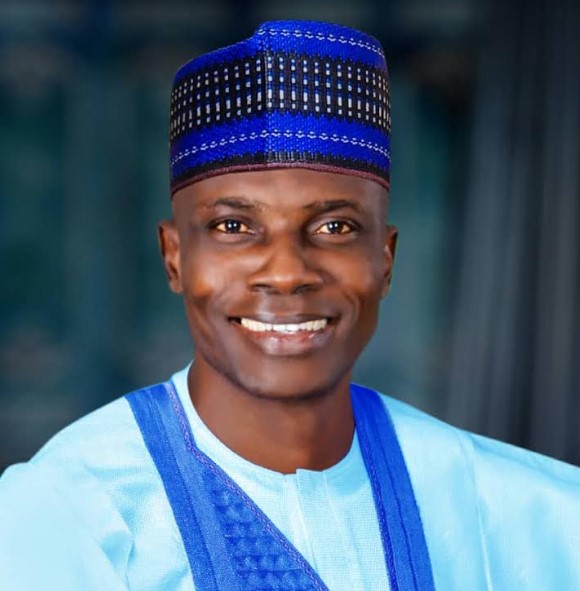
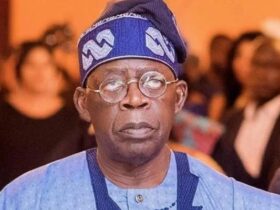

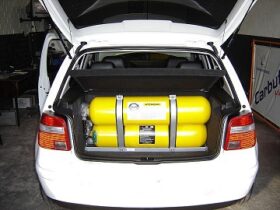
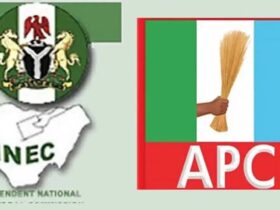
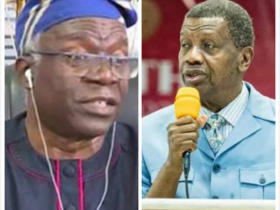
Leave a Reply